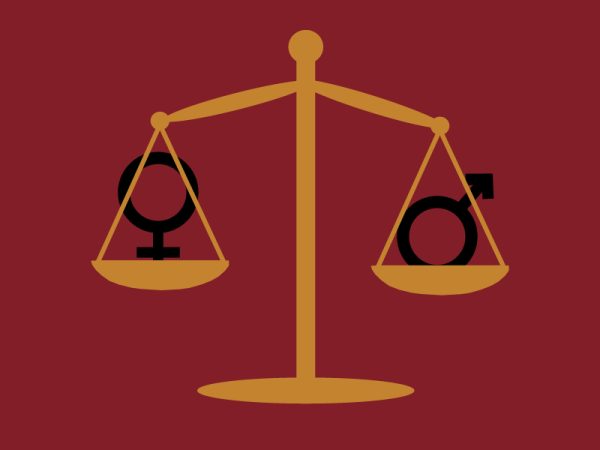Review: “Tall Girl” films unnecessarily highlight first-world problems
“Tall Girl 2” will premiere Feb. 11. Courtesy of Netflix. © 1997-2016 Netflix, Inc. All rights reserved.
February 11, 2022
“You think your life is hard? I’m a high school junior wearing size 13 Nikes. Men’s size 13 Nikes. Beat that,” says Jodi, the protagonist of Netflix’s “Tall Girl.”
Jodi’s predicament is not uncommon. Struggling with body image is extremely familiar to most girls in today’s society, especially with the unrealistic beauty standards that social media constantly perpetuates. In theory, “Tall Girl” could have had real potential to dispel these beauty standards laid out by our patriarchal society, but in practice, it fell short.
The movie stars Ava Mitchell who plays Jodi, a white, cisgendered, heterosexual, conventionally attractive, intelligent, blonde girl from an upper-middle class family. Despite all these societal privileges, the movie centers around Jodi’s grand predicament of, you guessed it, being tall.
For Jodi, her height isn’t just a minor insecurity about her physical appearance, something most viewers can relate to. Instead, it is an obsession that literally makes up her entire personality. The viewer learns almost nothing about Jodi as an individual, except that she occasionally reads books and that she used to play the piano. She no longer plays because she doesn’t want to give people another reason to look at her. Jodi’s debilitating insecurity over her height inhibited her from pursuing hobbies and forging defining personality traits.
Jodi’s only major challenge in life, as far as the audience knows, is her height. But it never actually causes her to face legitimate problems. Aside from some low-grade teasing from her classmates, Jodi’s hurdles and character development throughout the film are underwhelming.
Her insecurity about her height does not lead her to overcoming adversity, even though she claims she does. In reality, Jodi has a very fortunate life, and her overzealous insecurity about being taller than average obstructs the character’s ability to recognize her own privilege: She does not struggle to pay for what she needs, she gets a good education, she has a supportive family, kind friends and will very likely go on to live a nice, cushioned life.
Overall, the film screams first-world problems. Not only are Jodi’s problems trivial, but the problems of those around her are trivial as well. Her sister’s biggest challenge in life are her allergies and Jodi’s friend, Jack Dunkleman, spends the film butting heads with a foreign exchange student staying at his home.
While watching a film that harps on the inconsequential problems of privileged teenagers might be a fun distraction for an hour and half, in reality, the production makes a mockery of people who face tangible problems on an everyday basis for the way they present or identify themselves. At the end of the day, people like Jodi have an upperhand in the real world, and trying to pretend that Jodi faces true societal backlash just for being tall is simply misleading.
Netflix’s decision to release a sequel to the original “Tall Girl” film, places salience on the comparatively minute struggles of privileged members of society. Meanwhile, viewers can see that Jodi’s best friend, Fareeda, who is portrayed as a stereotypical sassy Black side-kick and best friend, likely struggles much more than Jodi as a Black woman in New Orleans. Several times throughout the movie, Fareeda even says that she has her own problems and struggles, but they are overshadowed by Jodi’s insecurity about her height.
Being a certain race has the potential to limit one’s opportunities in education, housing, financial well-being, careers and general quality of life. But instead of exploring these real experiences of ostracization, the films highlight the teasing that Jodi faces at school for being six feet and one inch tall.
So why would Netflix decide to bring back its character with one of the worst persecution complexes viewers have ever seen? One word: profit.
“Tall Girl” became infamous for its bad writing and ridiculous premise, but it still got a ton of attention. And instead of using its money to make a film about legitimately marginalized people with real problems, Netflix chose to waste it on making a sequel that will draw in the bad-movie addicts once again.
With “Tall Girl 2” set to premiere Feb. 11, the trailer reveals that Netflix is seemingly riding on the wave of the preceding film’s terrible acting and absurd topic to draw in money instead of bothering to redeem itself from the dumpster-fire original.


















